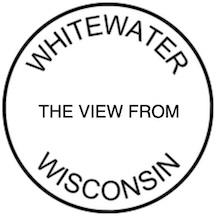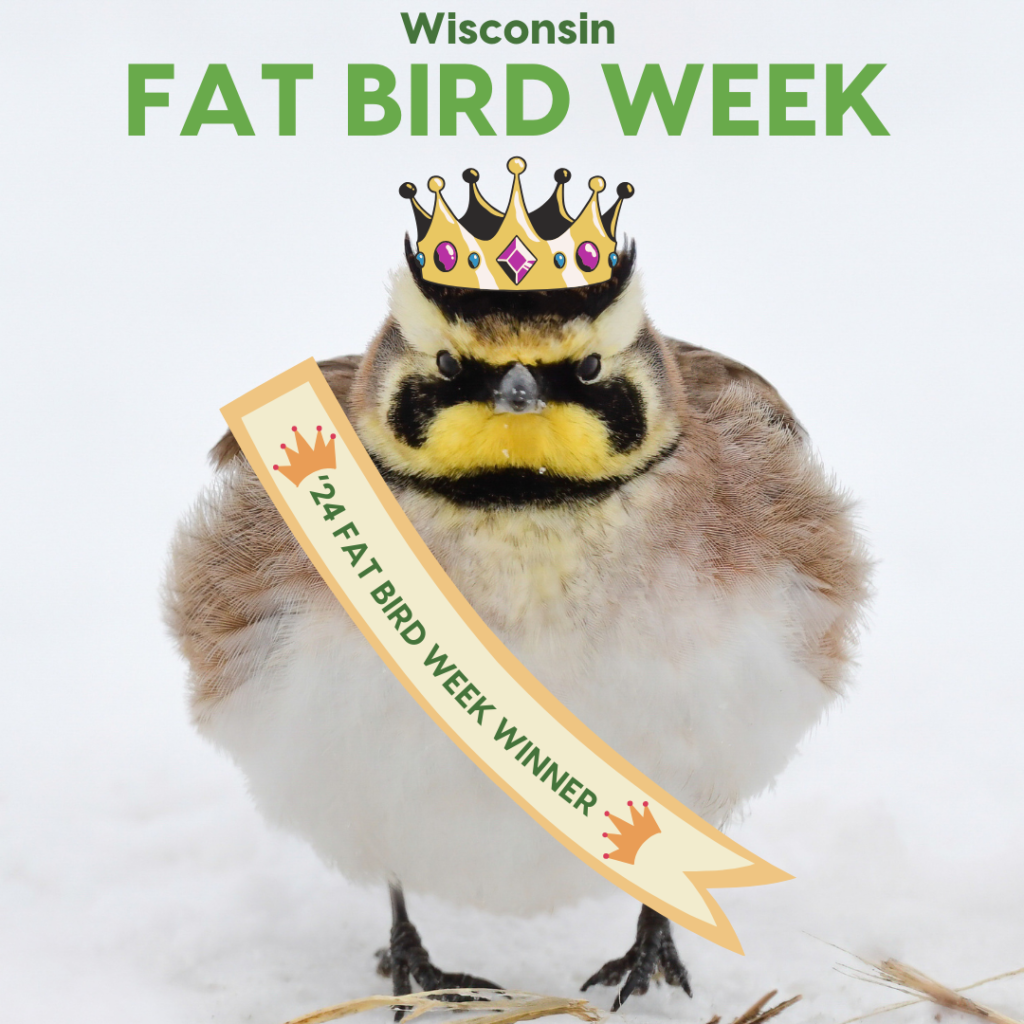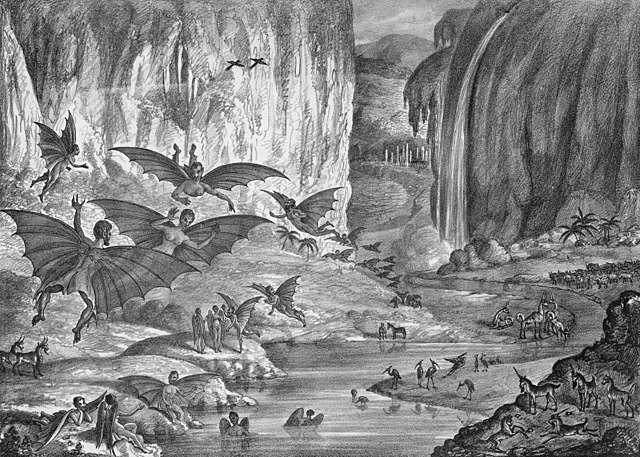Good morning. Sunday in Whitewater will see scattered morning showers with a high of 78. Sunrise is 5:23 and sunset is 8:35, for 15 hours, 12 minutes of daytime. The moon is a waxing gibbous with 82.9 percent of its visible disk illuminated. On this day in 1885, Louis Pasteur successfully tests his vaccine against rabies on Joseph…
Birds
Birds, Daily Bread
Daily Bread for 7.5.25: Pigeons (Often Underrated, Seldom Appreciated)
by JOHN ADAMS •
Good morning. Saturday in Whitewater will be sunny with evening thunderstorms and a high of 87. Sunrise is 5:22 and sunset is 8:36, for 15 hours, 13 minutes of daytime. The moon is a waxing gibbous with 75.2 percent of its visible disk illuminated. On this day in 1937, Spam, the luncheon meat, is introduced…
Animals, Birds, Conservation, Daily Bread, Environment, Insects, Nature, Plants, Wisconsin
Daily Bread for 6.24.25: Prairies & Pollinators
by JOHN ADAMS •
Good morning. Tuesday in Whitewater will be cloudy with a high of 84. Sunrise is 5:17 and sunset is 8:37, for 15 hours, 20 minutes of daytime. The moon is a waning crescent with 1.2 percent of its visible disk illuminated. On this day in 1812, Napoleon’s Grande Armée crosses the Neman river beginning the invasion of Russia. An interlude for…
Birds, Daily Bread, Nature, Wisconsin
Daily Bread for 6.15.25: American Kestrel Chicks Take Flight in Prairie du Chien
by JOHN ADAMS •
Good morning. Father’s Day in Whitewater will be partly cloudy with a high of 80. Sunrise is 5:15 and sunset is 8:35, for 15 hours, 19 minutes of daytime. The moon is a waning gibbous with 82.3 percent of its visible disk illuminated. On this day in 1846, the Oregon Treaty extends the border between the United…
Birds, Daily Bread, Nature
Daily Bread for 6.1.25: Pileated Woodpecker Snacks on Seeds and Suet
by JOHN ADAMS •
Good morning. Sunday in Whitewater will be sunny with a high of 72. Sunrise is 5:19 and sunset is 8:27, for 15 hours, 8 minutes of daytime. The moon is a waxing crescent with 34.5 percent of its visible disk illuminated. On this day in 1495, a monk, John Cor, records the first known batch of Scotch whisky.…
Birds, Daily Bread, Nature, Wisconsin
Daily Bread for 5.14.25: Winner of Wisconsin’s 2025 Fat Bird Contest
by JOHN ADAMS •
Good morning. Wednesday in Whitewater will be sunny with a high of 78. Sunrise is 5:32 and sunset is 8:10, for 14 hours, 37 minutes of daytime. The moon is a waning gibbous with 96.5 percent of its visible disk illuminated. The Whitewater Equal Opportunities Commission meets at 5 PM. On this day in 1973,…
Birds, Daily Bread, Nature
Daily Bread for 5.8.25: Midwest Migration is Underway
by JOHN ADAMS •
Good morning. Thursday in Whitewater will be sunny with a high of 69. Sunrise is 5:39 and sunset is 8:03, for 14 hours, 24 minutes of daytime. The moon is a waxing gibbous with 85.1 percent of its visible disk illuminated. On this day in 1945, the German Instrument of Surrender signed at Berlin-Karlshorst comes into effect. Midwest migration…
Birds, Conservation, Daily Bread, Good Ideas, Nature, Wisconsin
Daily Bread for 4.23.25: Mark Your Calendars for Fat Bird Week (Yes, Wisconsin Has a Fat Bird Week)
by JOHN ADAMS •
Good morning.

Wednesday in Whitewater will see scattered afternoon showers with a high of 70. Sunrise is 6:00 and sunset is 7:46, for 13 hours, 47 minutes of daytime. The moon is a waning crescent with 23.9 percent of its visible disk illuminated.
On this day in 1985, Coca-Cola changes its formula and releases New Coke. The response is overwhelmingly negative, and the original formula is back on the market in less than three months.
Something happy today, as though a palate cleanser in difficult times. Wisconsin’s Second Fat Bird Week is approaching. The Natural Resources Foundation of Wisconsin will hold Fat Bird Week from May 2nd to May 9th:
Let’s celebrate our chunky native birds and learn how to help them! Every day from May 2nd to May 9th you’ll get the chance to vote for your favorite bulbous bird.
How does voting work?
Our 8 chubby contestants compete in a single elimination, bracket-style tournament.
The first round of voting will open at 9am CST on Friday, May 2nd and voting will remain open for 48 hours. The second round of voting will open at 9am CST on Sunday, May 4th and remain open for 24 hours. The following rounds will open at 9am CST and last 24 hours until the final round on Friday, May 9th. The winner will be announced on Monday, May 12th.
Receive daily reminders to vote by signing up for the Bird News You Can Use email list. You’ll also be the first to find out who won Fat Bird Week!
….
In the world of birds, a fat bird is a healthy bird. Fat acts as a great lightweight source of energy for these important pollinators. Many of our favorite native Wisconsin species are also migratory birds and can pack on 50-100% of their body weight to store up enough energy for their long journey. For our non-migratory chonkers, they are able to fluff out their feathers during the winter months to stay warm.
Fat, healthy birds benefit our environment in a variety of ways. As key pollinators, birds disperse seeds, pollinate plants, and help manage pests in farmlands and forests. Birds also have significant mental health benefits for humans and support Wisconsin’s $2.6 billion wildlife watching economy. Known as “canaries in the coal mine,” birds can alert both people and wildlife to unhealthy conditions, too. What are the four biggest ways you can help?
See the Natural Resources Foundation of Wisconsin website for more information about their good work.
Here’s the 2024 winner:

Heavy dust storm sweeps across state in northern Mexico:
Birds, Climate, Daily Bread, Nature, Wisconsin
Daily Bread for 3.8.25: Warmer Wisconsin Winters Changing Ancient Sport of Falconry
by JOHN ADAMS •
Good morning.

Saturday in Whitewater will be sunny with a high of 48. Sunrise is 6:18 and sunset is 5:53, for 11 hours, 35 minutes of daytime. The moon is a waxing gibbous with 70.9 percent of its visible disk illuminated.
On this day in 1983, while addressing a convention of Evangelicals, Ronald Reagan labels the Soviet Union an “evil empire.” (It was, and the Russian Federation still is.)
Warmer Wisconsin Winters Changing Ancient Sport of Falconry:
Birds, Daily Bread, Wisconsin
Daily Bread for 2.11.25: ‘A Different Kind of Snowy Season’
by JOHN ADAMS •
Good morning.

Tuesday in Whitewater will be cloudy with a high of 22. Sunrise is 6:57 and sunset is 5:21, for 10 hours, 25 minutes of daytime. The moon is a waxing gibbous with 98.8 percent of its visible disk illuminated.
Whitewater’s Public Works Committee meets at 5 PM.
On this day in 1979, the Iranian Revolution establishes an Islamic theocracy under the leadership of Ayatollah Ruhollah Khomeini.
A Different Kind of Snowy Season:
Birds, Daily Bread, Nature, Wisconsin
Daily Bread for 1.16.25: Great Lakes Gulls
by JOHN ADAMS •
Good morning.

Thursday in Whitewater will be cloudy with a high of 35. Sunrise is 7:22 and sunset is 4:47, for 9 hours, 26 minutes of daytime. The moon is a waning gibbous with 92.2 percent of its visible disk illuminated.
Whitewater’s Community Development Authority meets at 5:30 PM.
On this day in 1945, Hitler moves into his underground bunker, the so-called Führerbunker.
Whitewater has geese at Cravath, but not far away by the Great Lakes one can find large numbers and varieties of gulls.
See Joe Tarr, Why gulls of the Great Lakes are no ordinary birds, Wisconsin Public Radio, January 16, 2025.
Blue Origin launches massive New Glenn rocket on first test flight:
Birds, Daily Bread, Nature, Photography, Wisconsin
Daily Bread for 11.24.24: Sandhill Cranes in Grantsburg & a View of Devil’s Lake State Park
by JOHN ADAMS •
Good morning.

Sunday in Whitewater will be partly cloudy with a high of 47. Sunrise is 6:58, and sunset is 4:24, for 9 hours, 26 minutes of daytime. The moon is a waning crescent with 35.2 percent of its visible disk illuminated.
On this day in 1971, during a severe thunderstorm over Washington state, a hijacker calling himself Dan Cooper (aka D. B. Cooper) parachutes from a Northwest Orient Airlines plane with $200,000 in ransom money. He has never been found.
Over at Vimeo, documentary filmmaker and photographer Lorie Shaull recently published Sandhill Cranes at Crex Meadows Wildlife Area in Grantsburg, Wisconsin:
At Instagram, photographer Andy Merkel offers a view of Devil’s Lake State Park:
Birds, Daily Bread
Daily Bread for 8.25.24: Birds
by JOHN ADAMS •
Good morning.

Sunday in Whitewater will be mostly sunny with a high of 87. Sunrise is 6:13, and sunset is 7:39, for 13h 25m 53s of daytime. The moon is a waning gibbous with 59.2 percent of its visible disk illuminated.
On this day in 1835, the Michigan legislature incorporated the Wisconsin Internal Improvement Company to open communication between Green Bay and the Mississippi by land or water. The Governor of the Michigan territory (the Wisconsin territory was not yet created), Stevens T. Mason, also officially called for creating a western legislative council. Both actions were critical to the creation of the Wisconsin Territory.
Also on this day in 1835, the first Great Moon Hoax article is published in The New York Sun, announcing the discovery of life and civilization on the Moon.

Rare birds guided by microlight in assisted migration project:
Birds, Daily Bread, Faraway Places
Daily Bread for 7.13.24: Sydney’s Feathered Celebrities
by JOHN ADAMS •
Good morning.

Saturday in Whitewater will be sunny with a high of 87. Sunrise is 5:29 and sunset 8:31 for 15h 02m 25s of daytime. The moon is a waxing crescent with 46.1 percent of its visible disk illuminated.
On this day in 1787, the Congress of the Confederation enacts the Northwest Ordinance establishing governing rules for the Northwest Territory. It also establishes procedures for the admission of new states and limits the expansion of slavery.
Sydney’s Feathered Celebrities:
But the candidates for Australia’s “naughtiest bird” haven’t always lived in the city. So, what brought them here? And how are Sydney’s residents using smartphones to track them? We learn all about the Wingtag and Big City Birds projects.
Fireball seen across Wisconsin skies on Thursday night:
